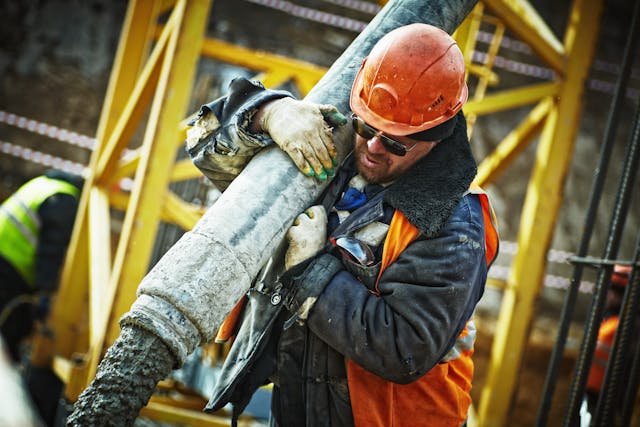
SALT LAKE CITY, Utah — A new push at the Utah State Capitol could soon change the way workers are paid on taxpayer-funded building projects, including the new North Building currently under construction. A recently released statewide poll indicates voters strongly favor requiring a standardized wage rate for construction workers on all state-funded projects, a policy supporters say will ensure fairness, attract more labor, and improve the quality of public infrastructure.

Rep. Tyler Clancy (R-Provo) is championing the legislation, noting that many state-funded projects lack clear wage expectations despite taxpayer investment. He emphasized that Utah would not be entering unknown territory if the measure passes.
“This already exists for federal projects. So if President Trump, or you know, the federal government was going to invest in a new building used with federal dollars, this would be the same framework,” Clancy explained. “And so we’re not reinventing the wheel necessarily, just setting a standard that I think taxpayers already expect.”
Clancy’s proposal seeks to officially require wage standards statewide, ensuring contractors meet set compensation thresholds when working on state-funded jobs. Survey results from Y2 Analytics suggest that support increases even further when voters learn more about its potential benefits.
“When we explain things a little bit further, give some additional rationale, talking about fair wages, local contractors and keeping publicly funded projects back in the state, reinvesting those tax dollars, we find that support among Utah voters jumps to 74% total,” said Kyrene Gibb, Vice President of Research at Y2 Analytics. “So about three out of four Utah voters would be interested in seeing that area wage standard.”

Industry members say wage standards could not only create fairness in pay, but strengthen Utah’s shrinking construction workforce. Veteran contractor Chris Baldwin, who has worked for four decades as a general and electrical contractor, acknowledged that the current system leaves room for favoritism.
“I paid employees that I knew more than employees that I didn’t know,” Baldwin admitted. “I’m just going to come right out and say that it’s evil, but it’s the truth. You know, if I know your dad, I’m going to give you a few more perks than somebody that I don’t know.”
Clancy argues that wage consistency leads directly to better infrastructure outcomes, saving taxpayers money by reducing rework and repair costs.
“I think the emphasis comes is that we want to make sure that we’re investing in high-quality infrastructure,” he said. “So when we build a project, we don’t have to go back three years later, redo half of it, or amend different things that’s going to cost taxpayers more, and that’s a big emphasis of this legislation.”
Baldwin believes that fair compensation could encourage more young adults to pursue careers in construction as the industry faces labor shortages and rising housing demands.
“I think it’s important,” Baldwin said. “Build a strong youth workforce, because they’re our future, and the only way you’re going to entice these young men and women is by offering a good life.”
If passed, the legislation would mark one of the most significant labor policy shifts in Utah’s construction sector in years, potentially reshaping how public projects are built, paid for, and staffed.
Originally reported by Marc Blaine in Fox 13 Now.